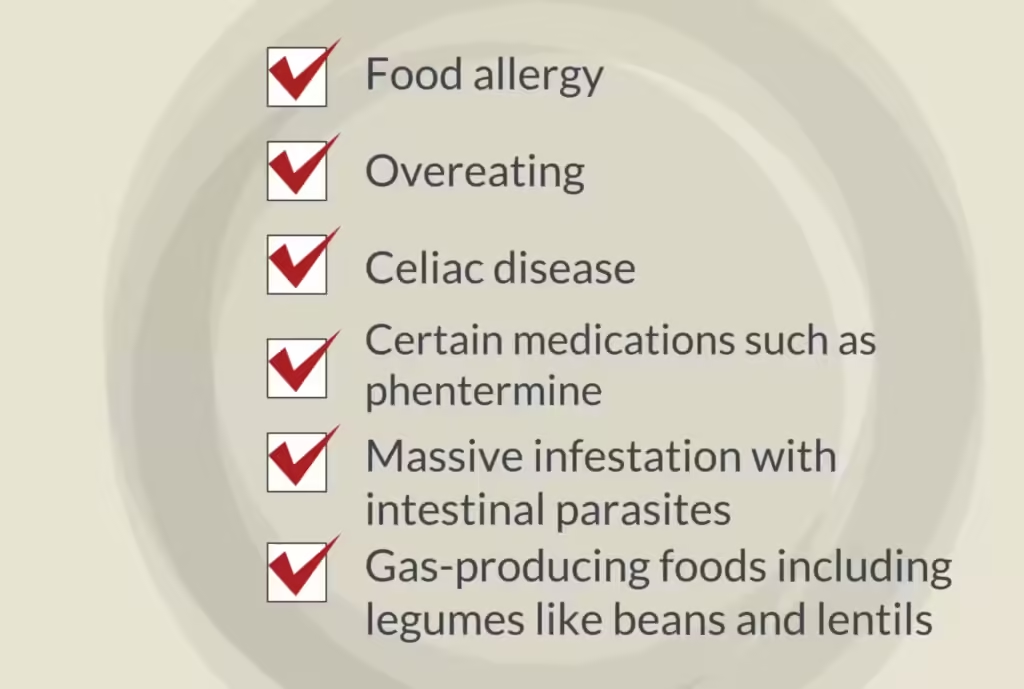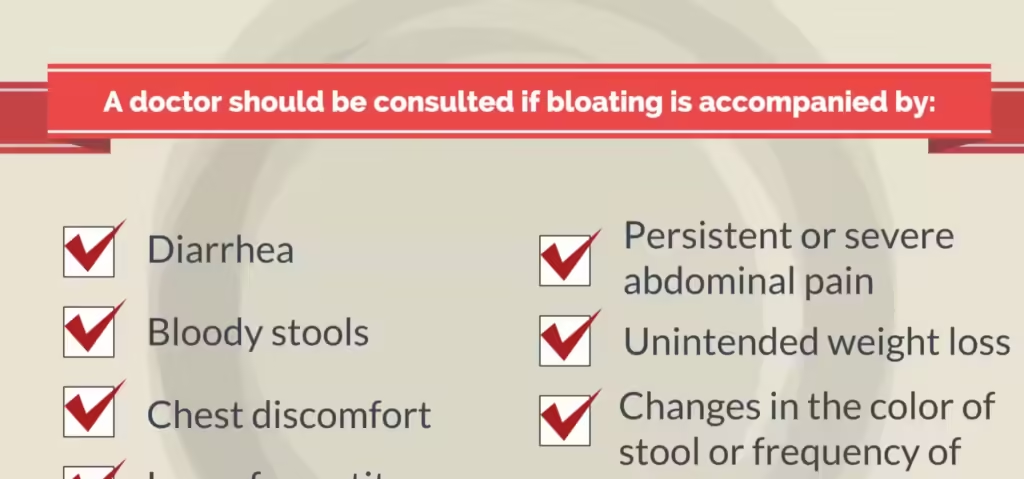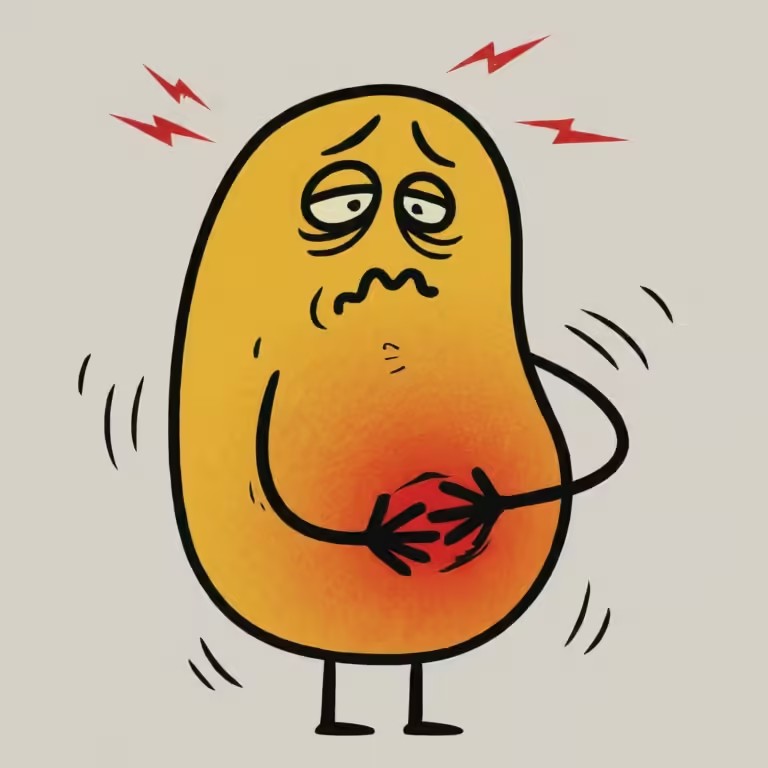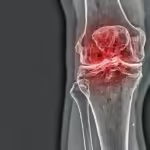Medically reviewed by Dr Itender Pal Singh
Bloating is an uncomfortable and often embarrassing condition that affects millions of people worldwide. Whether it’s after a big meal, during your menstrual cycle, or due to underlying health issues, bloating can make your belly feel swollen, tender, and painful. But fear not! There are numerous ways to reduce bloating quickly and prevent it from recurring in the long term. In this article, we will discuss into the causes of bloating, quick relief methods, and long-term strategies to keep your belly flat and comfortable.
In this article-
Bloating Causes
Bloating occurs when gas builds up in your gastrointestinal (GI) tract, causing your belly to appear larger than usual and often feel uncomfortable or painful. Fluid retention can also contribute to bloating, making it essential to understand the underlying causes to effectively tackle it.
Digestive Issues
Several digestive problems can lead to bloating:
- Constipation: When stool backs up in the large intestine, it can cause a feeling of fullness and bloating. Excess gas may also accumulate behind the stool, exacerbating the discomfort.
- Food Allergies and Intolerances: Reactions to certain foods, such as lactose intolerance or celiac disease (gluten intolerance), can cause bloating as the body struggles to digest these substances.
- Irritable Bowel Syndrome (IBS): A common condition that affects the large intestine, leading to bloating, gas, diarrhea, and constipation.
- Massive infestation with intestinal parasites.

Dietary Choices
Your diet plays a significant role in bloating:
- Fizzy Drinks: Carbonated beverages contain carbon dioxide, which can build up in the stomach and cause bloating.
- Excess Salt or Sugar: High intake of salt can lead to water retention, while excessive sugar can ferment in the gut, producing gas.
- Low Fiber Intake: Not consuming enough fiber can result in constipation and bloating.
Hormonal Changes
Hormonal fluctuations, especially in women, can cause bloating:
- Menstrual Cycle: Many women experience bloating before and during their periods due to hormonal changes and water retention.
- Pregnancy: Increased hormone levels during pregnancy can slow digestion, leading to bloating.
Quick Fixes to Relieve Bloating Fast
When bloating strikes, it’s essential to have strategies to alleviate discomfort quickly. Here are seven effective home remedies to get rid of a bloated belly fast:
1. Go for a Walk
Why It Works: Physical activity stimulates the digestive system, helping to move gas and stool through the intestines more efficiently.
How to Do It:
- Take a brisk walk around the block for 15-30 minutes.
- Incorporate light stretching to further aid digestion.
Benefits:
- Reduces gas pressure.
- Alleviates constipation-related bloating.
2. Try Yoga Poses
Why It Works: Certain yoga poses can help position the abdominal muscles to release trapped gas and improve overall digestion.
Effective Poses:
- Child’s Pose: Stretches the abdomen and promotes relaxation.
- Happy Baby Pose: Relieves tension in the lower back and abdomen.
- Squats: Encourage movement in the digestive tract.
How to Do It:
- Follow a guided yoga routine focused on digestive relief.
- Hold each pose for 30 seconds to a minute, breathing deeply.
3. Use Peppermint Capsules
Why It Works: Peppermint oil relaxes the intestinal muscles, allowing gas and stool to pass more easily.
How to Use:
- Take peppermint oil capsules as directed on the package.
- Typically, 1-2 capsules after meals can help alleviate bloating.
Precautions:
- Follow dosage instructions carefully.
- Avoid peppermint if you are prone to heartburn.
4. Try Gas Relief Capsules
Why It Works: Simethicone pills and liquids break down gas bubbles in the digestive tract, making it easier to expel gas.
How to Use:
- Take simethicone products according to the label instructions.
- Available over-the-counter in various forms, such as chewable tablets or liquid drops.
Benefits:
- Provides quick relief from gas-related bloating.
- Easy to incorporate into your daily routine.
5. Abdominal Massage
Why It Works: Massaging the abdomen can stimulate the bowels and help move trapped gas through the digestive system.
How to Perform:
- Start Position: Place your hands just above your right hip bone.
- Circular Motion: Rub in a circular motion with light pressure, moving towards the right side of the ribcage.
- Across the Upper Belly: Move straight across the upper belly towards the left rib cage.
- Down to the Left Hip: Slowly move down towards the left hip bone.
- Repeat: Continue the motion for 5-10 minutes, adjusting pressure as needed.
Tips:
- Use gentle, clockwise motions following the path of the large intestine.
- Discontinue if you experience pain.
6. Use Essential Oils
Why It Works: Certain essential oils, like fennel and curcumin, have been shown to reduce bloating and abdominal pain, especially in individuals with IBS.
How to Use:
- Dilute a few drops of essential oil in a carrier oil and massage into the abdomen.
- Alternatively, take supplements containing these oils, following product instructions.
Precautions:
- Consult a healthcare professional before use.
- Avoid ingestion of essential oils unless under professional guidance.
7. Take a Warm Bath
Why It Works: The heat from a warm bath can relax abdominal muscles and reduce stress, which can help the digestive system function more effectively.
How to Do It:
- Soak in a warm bath for 15-20 minutes.
- Incorporate Epsom salts for added muscle relaxation.
Benefits:
- Provides immediate relief from abdominal discomfort.
- Promotes overall relaxation and stress reduction.
Long-Term Solutions to Prevent Bloating
While quick remedies are essential for immediate relief, adopting long-term strategies can help prevent bloating from becoming a recurring issue. Here are eleven effective methods to keep bloating at bay:
8. Increase Fiber Gradually
Why It Works: A high-fiber diet promotes regular bowel movements, preventing constipation and bloating. However, increasing fiber too quickly can initially cause more gas and bloating.
How to Do It:
- Start by adding small amounts of fiber-rich foods to your diet, such as fruits, vegetables, and whole grains.
- Gradually increase your fiber intake over several weeks.
- Drink plenty of water to help fiber move through the digestive system.
Recommended Intake:
- Women: 25 grams per day.
- Men: 38 grams per day.
Tips:
- Incorporate a variety of fiber sources to ensure a balanced intake.
- Monitor your body’s response and adjust accordingly.
9. Replace Sodas with Water
Why It Works: Carbonated drinks contain gas that can build up in the stomach, leading to bloating. Additionally, sugars and artificial sweeteners in sodas can ferment in the gut, producing more gas.
How to Do It:
- Opt for still water, herbal teas, or infused water with fruits for flavor.
- Limit or eliminate fizzy drinks from your diet.
Benefits:
- Reduces gas buildup from carbon dioxide.
- Lowers sugar and artificial sweetener intake, minimizing fermentation.
10. Avoid Chewing Gum
Why It Works: Chewing gum can cause you to swallow air, leading to excess gas in the digestive tract. Additionally, sugar alcohols found in some gums can cause bloating.
How to Do It:
- Reduce or eliminate gum chewing.
- Use alternatives like ginger mints or natural breath fresheners.
Benefits:
- Decreases the amount of swallowed air.
- Reduces intake of sugar alcohols that can cause gas.
11. Get More Active
Why It Works: Regular exercise promotes healthy digestion by moving stool and gas through the colon more efficiently. It also helps reduce water retention by promoting sweating.
How to Do It:
- Incorporate at least 30 minutes of moderate exercise into your daily routine, such as walking, jogging, or cycling.
- Include strength training and flexibility exercises for overall health.
Benefits:
- Enhances bowel regularity.
- Reduces bloating caused by water retention and constipation.
12. Eat at Regular Intervals
Why It Works: Eating smaller, more frequent meals can prevent the digestive system from becoming overwhelmed, reducing the chances of bloating. Eating too quickly can also lead to swallowing air, contributing to gas buildup.
How to Do It:
- Divide your daily food intake into 5-6 smaller meals instead of 3 large ones.
- Chew your food thoroughly and eat slowly to minimize air swallowing.
Tips:
- Avoid using straws, which can increase the amount of air you swallow.
- Focus on mindful eating practices to improve digestion.
13. Try Probiotics
Why It Works: Probiotics are beneficial bacteria that help maintain a healthy gut microbiome. They can regulate digestion and reduce gas production, thereby minimizing bloating.
How to Use:
- Incorporate probiotic-rich foods into your diet, such as yogurt, kefir, sauerkraut, and kimchi.
- Consider taking a probiotic supplement, following the recommended dosage.
Benefits:
- Enhances gut health.
- Reduces the occurrence of gas and bloating.
14. Cut Down on Salt
Why It Works: Excess sodium causes the body to retain water, leading to a bloated and swollen feeling in the belly and other parts of the body.
How to Do It:
- Limit the use of table salt in cooking and at the table.
- Avoid processed and packaged foods high in sodium.
- Use herbs and spices to flavor your meals instead of salt.
Benefits:
- Reduces water retention.
- Helps maintain a balanced electrolyte level.
15. Rule Out Medical Conditions
Why It Works: Persistent bloating can be a symptom of underlying medical conditions such as inflammatory bowel disease (IBD), irritable bowel syndrome (IBS), or gynecological issues like endometriosis and ovarian cysts.
How to Do It:
- Consult a healthcare professional if bloating is frequent or severe.
- Undergo diagnostic tests like blood tests, X-rays, ultrasounds, or colonoscopies as recommended by your doctor.
Benefits:
- Identifies and treats underlying health issues.
- Provides targeted relief from chronic bloating.
16. Consider a Low-FODMAP Diet
Why It Works: FODMAPs are fermentable carbohydrates that can cause gas, bloating, and other digestive symptoms in some people. A low-FODMAP diet helps identify and eliminate these problematic foods.
How to Do It:
- Work with a dietitian to implement a low-FODMAP diet.
- Gradually reintroduce high-FODMAP foods to identify specific triggers.
Benefits:
- Significantly reduces bloating and IBS symptoms.
- Helps personalize your diet based on tolerance levels.
17. Keep a Food Diary
Why It Works: Tracking your food and drink intake can help identify specific foods that cause bloating and gas, allowing you to make informed dietary choices.
How to Do It:
- Record everything you eat and drink, along with the time and any symptoms experienced.
- Analyze the diary to spot patterns and identify potential triggers.
Tools:
- Use apps or templates provided by health organizations like the CDC to maintain your food diary.
Benefits:
- Helps pinpoint food intolerances or allergies.
- Empowers you to make dietary adjustments to reduce bloating.
18. Review Supplements and Medications
Why It Works: Some supplements and medications can cause bloating as a side effect. Reviewing them can help identify and mitigate these issues.
How to Do It:
- Consult with your doctor or pharmacist about any supplements or medications you’re taking.
- Explore alternatives that are gentler on the digestive system if necessary.
Benefits:
- Reduces bloating caused by side effects.
- Ensures a balanced approach to supplements and medications.
19. Stay Hydrated Throughout the Day
Drinking plenty of water is essential for a healthy digestive system. Staying hydrated helps to flush out excess sodium and reduce water retention, which can alleviate bloating. When the body is well-hydrated, it can better regulate the balance of fluids in the cells and tissues, reducing the likelihood of bloating. Additionally, water helps to keep the digestive system moving smoothly, preventing constipation, which can also lead to bloating.
20. Limit High-Fat Foods
While fats are a necessary part of a balanced diet, consuming too much can slow down digestion and cause bloating. High-fat foods can take longer to digest, leading to a buildup of gas and discomfort in the stomach and intestines. To reduce bloating, try to balance your meals with a good mix of protein, carbohydrates, and healthy fats, and avoid consuming large amounts of fatty foods in one sitting. Opting for leaner cuts of meat, low-fat dairy products, and cooking methods like grilling or steaming can help prevent bloating.

When to See a Doctor
While bloating is often harmless and related to diet or lifestyle, it can sometimes signal a more serious medical condition. Seek medical attention if you experience:
- Persistent Bloating: Lasting for days or weeks without improvement.
- Accompanying Symptoms: Such as changes in appetite, diarrhea, vomiting, unexplained weight loss, fever, severe abdominal pain, or blood in the stool.
- Severe Discomfort: Making it difficult to perform daily activities.
Potential Medical Conditions:
Early diagnosis and treatment of underlying conditions can prevent complications and provide relief from chronic bloating.
Final Thoughts
Bloating is a common issue that can significantly impact your comfort and quality of life. Understanding the causes and implementing both quick and long-term solutions can help you manage and prevent bloating effectively. From making simple dietary adjustments and increasing physical activity to exploring medical treatments for persistent symptoms, there are numerous strategies to keep your belly flat and comfortable.
Remember, if bloating persists or is accompanied by other concerning symptoms, it’s crucial to consult with a healthcare professional to rule out any serious underlying conditions. By taking proactive steps and listening to your body, you can conquer bloating and enjoy a healthier, more comfortable life.
Additional Tips for Managing Bloating
Beyond the strategies outlined above, here are a few extra tips to help you manage and prevent bloating:
- Stay Hydrated: Drinking enough water aids digestion and prevents constipation, a common cause of bloating.
- Limit High-Fat Foods: Fatty foods can slow down digestion, leading to bloating.
- Incorporate Anti-Inflammatory Foods: Foods like ginger, turmeric, and leafy greens can reduce inflammation in the gut.
- Mind Your Eating Environment: Eating in a calm, relaxed setting can improve digestion and reduce bloating.
Implementing these additional tips can further enhance your efforts to keep bloating at bay.
Bloating is a multifaceted issue influenced by various factors, including diet, lifestyle, and underlying health conditions. By understanding the root causes and adopting a combination of quick relief methods and long-term preventive measures, you can effectively manage and reduce bloating. Whether it’s through dietary adjustments, increased physical activity, or exploring natural remedies, there are plenty of ways to achieve a flatter, more comfortable belly. Always remember to consult with healthcare professionals when bloating is persistent or severe to ensure comprehensive care and treatment.
Take charge of your digestive health today and embrace a life free from the discomfort of bloating!
References
- National Institute of Diabetes and Digestive and Kidney Diseases (NIDDK): Information on bloating and digestive health.
- American College of Gastroenterology: Guidelines on managing IBS and related bloating.
- Centers for Disease Control and Prevention (CDC): Resources on maintaining a healthy diet and tracking food intake.
- Harrison Manual Of Internal Medicine.
Note: Always consult with a healthcare professional before starting any new treatment or making significant changes to your diet or lifestyle.




Pingback: Shocking Link Between Acid Reflux Drugs and Migraine: New Study Reveals - Healing Doctor
Pingback: Upper Stomach Pain: 10 Causes You Shouldn't Ignore and How to Fix Them - Healing Doctor